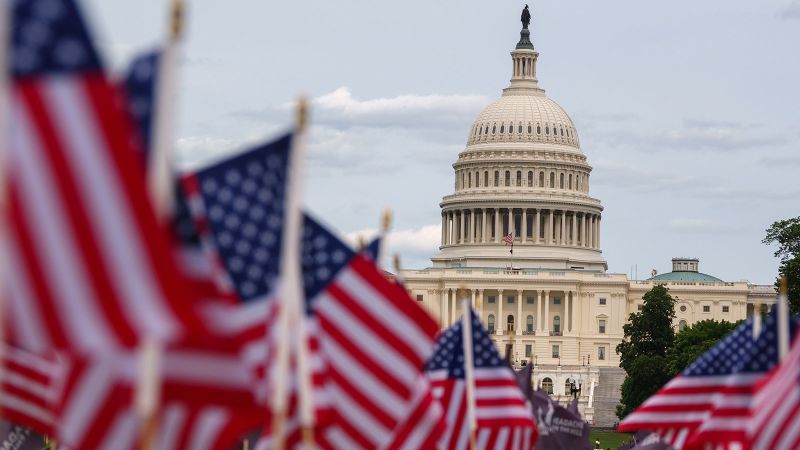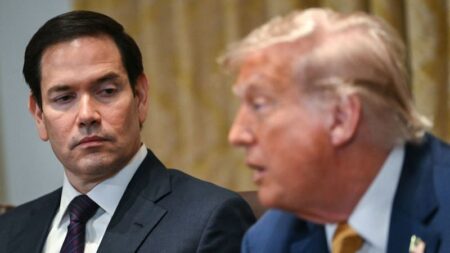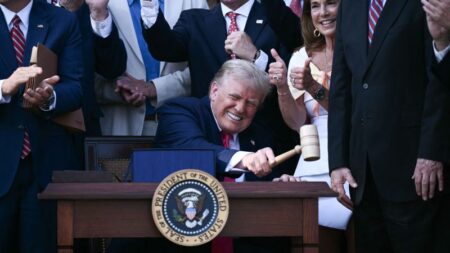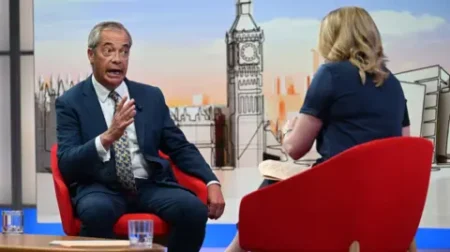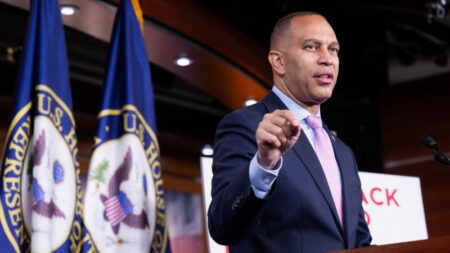The White House recently took a significant step in its budgetary strategy by submitting a comprehensive spending cuts request to Congress, widely referred to as a rescission package. This eagerly awaited proposal, amounting to approximately $9.4 billion, aims to withdraw previously allocated federal funds, a tactic designed to streamline government expenditure. The strategic choice to leverage rescissions not only reflects an effort to cut costs but also acts as a safeguard against potential legal disputes that could arise from executive funding decisions. In essence, this maneuver is an attempt to navigate the intricate legislative landscape while advocating for a reduction in federal financial commitments.
Among the various targets identified in the rescission package, the Corporation for Public Broadcasting stands out as a primary focus. This organization, which plays a crucial role in funding both National Public Radio (NPR) and the Public Broadcasting Service (PBS), is a small yet significant part of the federal budget. Also included in the cuts is the United States Agency for International Development (USAID), which often faces scrutiny for its funding allocations abroad. Such decisions hint at broader ideological underpinnings regarding the role of government in supporting public broadcasting and international development initiatives.
However, it is essential to note that this rescissions request is far less ambitious compared to previous proposals from the administration, which promised over $1 trillion in spending cuts. The elongated timeline leading to this initial submission underscores the challenges that lie ahead, particularly as the Republican-controlled Congress grapples with codifying these reductions. Political dynamics within Capitol Hill suggest a complicated path forward. Despite the clear intent of the current administration, the practicalities of securing passage in both chambers of Congress remain uncertain.
According to the legislative framework, Congress is allotted a period of 45 days to deliberate on this proposal following its submission by the White House. Importantly, this package can be approved by a simple majority in both the House of Representatives and the Senate, presenting a potential pathway for its passage devoid of Democratic support. House Speaker Mike Johnson has pledged that the House will “act quickly on this request,” indicating the Republican leadership’s commitment to advancing the package through legislative channels.
In a statement regarding the rescissions package, Speaker Johnson emphasized that it aligns with the findings of the administration and serves as one of the legislative mechanisms Republicans plan to utilize in restoring fiscal responsibility. His mention of collaborative efforts with the White House indicates a concerted effort to push forward these budgetary reforms. Furthermore, Johnson has indicated the possibility of “multiple” rescission packages being presented to Congress in the coming months, suggesting that this may just be the beginning of an ongoing fiscal initiative.
However, the reality within the House is more complex, as House Minority Leader Hakeem Jeffries has articulated expectations of robust and organized opposition from Democrats regarding this and subsequent packages. He anticipates that any proposed legislation will encounter significant difficulty in passing both the House and ultimately the Senate. Such sentiments highlight the partisan divide that characterizes current legislative processes and sets the stage for contentious debates over budgetary priorities.
Historically, similar efforts to retract funding have been undertaken in previous administrations, such as during Trump’s presidency. Those attempts encountered substantial roadblocks, including a failed package intended to revoke $15 billion in unspent funds. As the current administration embarks on this path, it must remain mindful of the historical context and the challenges that have complicated similar efforts before.
In conclusion, the submission of this rescission package marks a strategic move by the White House to reduce federal spending amid a challenging political landscape. With implications that extend into various sectors, particularly public broadcasting and international assistance, the outcome in Congress will likely be a focal point of political discourse in the months ahead. The interplay between fiscal policy and partisan dynamics will undoubtedly shape the future of this initiative, as both parties navigate their positions on government funding and spending priorities.





